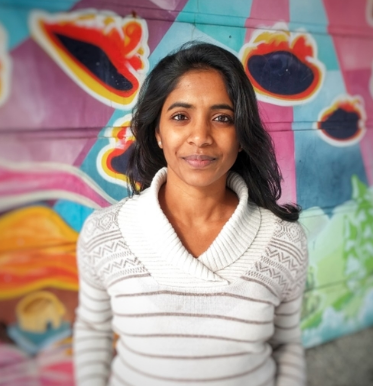What I wish I knew series: MPH Degree (Part 1)
As I reflect back to the beginning of my public health career journey, I find myself thinking about what I wish I had known at various stages of this journey. I don’t regret the choices I made, but I do wonder had I known more than I did, would I have made different choices? Often, these questions fell within three periods of my Master of Public Health (MPH) journey:
- What I wish I had known BEFORE I started the degree
- What I wish I had known WHILE I was pursuing the degree, and
- What I wish I had known right AFTER I completed the degree.
This was a common conversation topic amongst my peers and were also questions I would receive from the PH SPOT community. I also knew that these conversations were happening amongst other networks of public health friends.
In an attempt to bring everyone into the conversation, especially those who were about to start their public health journey (possibly considering an MPH), I was motivated to put together this series.
I reached out to you all, the PH SPOT community, to ask you what you wished you had known via a survey I sent out in the January 24, 2019 newsletter – so thank you to everyone who contributed!
I hope that this compilation of reflections and advice is helpful to those starting off their public health journey.
The Public Health Career Club
Wanna join the #1 hangout spot and community dedicated to building and growing your dream public health career?
Bringing your real-world experience into the classroom
I completed my undergraduate degree in 2011 at the University of Toronto and went straight into my Master’s program at the University of Saskatchewan. At the time I was beginning my Master’s program I had some work experience (mostly in a volunteer capacity). Now that I have been working full time in public health (for over 5 years) I often wish I could go back to my MPH class with this experience. I think about the assignments or conversations we would have within the classroom, and wonder if I would have gained more from the classroom and degree with my 5 years of career experience.
So here’s your first tip: having “real-world” public health experience will make your classroom experience much more valuable.
Here’s how you can do that.
If you are already in a Master’s level program, don’t worry it’s not too late if you haven’t gotten a chance to secure good quality real-world public health experience. One way to getting around this is jumping in and finding public health work while you are pursuing your degree. When I was pursuing my degree, I reached out to professors and secured three casual research positions to work on, in addition to my coursework.
On the other hand, if you have not started the program yet, and have a few months before you start, I would highly recommend you to gain some experience right away.
As one PH SPOT member said in the survey, go in with the mindset that you should not only learn the theory in class and complete assignments, you should also use the opportunity to gain valuable experience – try reaching out to your professors or even other departments to see if there are research projects you can be a part of. If that’s not working, reach out to community organizations and offer your time. This will not only give you the best experience during your program, but it will prepare you once you graduate:
“I wish I knew that volunteering and work experience matters when pursuing a career in public health. It is expected that you have 3 to 5 years of full working experience when you graduate to get an entry-level job; varies by province. I wish I pursued more of these opportunities while in school, as this is the easiest time to get accepted and learn!”
Mindset is everything
I mentioned mindset and expectations in the previous paragraph, this was a big one for me (as well as others, as you will see below).
In hindsight, when I think back to the time I applied to my MPH degree, I did not have a clear understanding of “public health”. This could have been partially because of my lack of “real-world” experience, and partially because I didn’t take the time to think about what the program meant, and the expectations I had for my two years.
Now that I sit and reflect 8 years after the first semester of my MPH program, I wonder if my mindset would be different had I taken the time to understand public health and what it meant for me, before entering the program. And so, the second advice comes here: have clear expectations for the degree and a mindset that reflects it.
Here are what others had to say around this:
I wish I knew “[that] this degree and career direction isn’t about the money. If that’s a major concern for you, perhaps this isn’t the best degree for you to pursue.”
I wish I knew “that I’d always be learning, and that there are many more aspects of Public Health that are interesting and compelling than I thought when I has first started the program”.
One PH SPOT member seems to have done this well, and this strategy could be something you might want to consider:
“I deferred my admission a year, and that created an opportunity for me to reflect and to think more strategically about what I wanted to get out of my MPH. Even though I love learning content, looking ahead and thinking ahead on what would best serve my career, I realized I should focus on gaining portable skills that I could apply across industries and fields. That has been incredibly useful!”
In order to shift into the right mindset and have the appropriate expectations, a little bit of research goes a long way.
What else?
Shifting gears a bit, let’s look at what others had wished they had known, aside from relevant “real-world” experience and the right mindset:
I wish I knew that “…an MPH is competing with the same jobs that an MSc in epidemiology is, so make sure you’re focussing on your stats skills as well as what else you can bring to the program”.
I wish I knew “…what public health classes would be like. I did not expect the amount of group work that [an] MPH involves.”
I wish I knew that an MPH “…is of more use when paired with a bachelor’s degree that is NOT public health related.”
I wish I knew “…of the types of [job] positions resulting from an MPH, and [the] respective associations [for] Epidemiologists (APHEO.ca), health promoters (Healthpromotioncanada.ca), [and] public health nurses, researchers, among others.”
I wish I knew about:
…“the program experience”.
…“job opportunities”.
…“international student information”.
…“why I should study MPH in Canada”.
I hope these reflections from a dozen of your peers will help make your MPH journey even better. And, for those of you that contributed to this post, thank you so much!
This article is just the start of many conversations I hope to have with you here. Let’s keep it going in the comments! If you have already completed your MPH, which of these resonate most with you? Which do you disagree with? If you are about to start your MPH, which of these had you already done and which were new tips? Looking forward to a great conversation.
This blog post was written by Sujani, in collaboration with thoughts shared by the PH SPOT community.
Read part 2 here.






